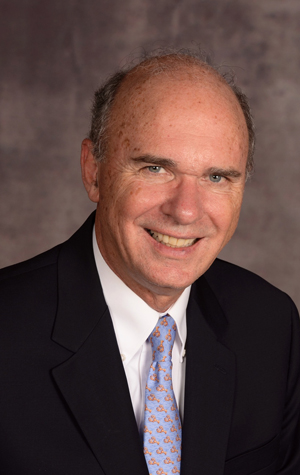Methodist Bishop Will Give Baccalaureate Address
Peter Weaver returns to alma mater

From fundamentalist zealots waving antigay signs at funerals to the apparent religious motive behind the Boston Marathon bombings, the public face of faith can be twisted with anger and prejudice. Bishop Peter D. Weaver knows another reality: as a Methodist pastor and bishop, he has led congregations in demonstrations of compassion—sheltering homeless women, tending AIDS patients, and comforting victims of racism.
Weaver (STH’75) has believed from the outset of his ministry that highlighting the service of God’s people would spread the faith. When he became bishop of the New England Conference of the United Methodist Church in 2004, the conference counted 550 churches. On his retirement last year, there were 644.
So at Methodist-founded Boston University, Weaver will make an especially apt speaker when he takes the pulpit at Marsh Chapel to give this year’s Baccalaureate address on Commencement morning, May 19. Later that day, Weaver, who also stepped down last year after eight years as a University trustee, will receive an honorary Doctor of Humane Letters at the All-University Commencement ceremony.
Weaver says he is humbled by being given an honorary degree, calling it “not so much for me as for the Methodist heritage that founded and nurtured this great University.” As for public displays of that faith tradition, “many of our churches in New England have become more engaged with the community beyond their walls,” he says, citing an initiative several years ago challenging every congregant to participate in one new service ministry.
“The results were everything from legal help for new immigrants to new community youth ministries to expanded sheltering, feeding, and health ministries with persons in poverty and those who are homeless,” Weaver says. Others tutored kids, worked in disaster relief, advocated for health care or immigration reform, and served overseas, from Nicaragua to Angola.
Weaver’s religious faith came early. His father was a Methodist pastor in Pennsylvania, and in a 2004 interview with the Boston Globe, Weaver credited his church’s youth group with helping him cope with high school bullying. “I felt lonely and marginalized. I grew up in a city high school, where, as happens in many places, people made fun of you, and where I got beat up several times.”
He graduated from West Virginia Wesleyan College and Drew University, having swapped his planned career in the law for ministry after hearing an inspirational preacher. He became a Methodist deacon in 1967 and ultimately was a pastor in Pittsburgh churches. In a foretaste of what he’d do as New England bishop, he grew membership and budgets at two of those churches—one well-heeled, one poor—by having both sets of congregants gather together for prayer and fellowship.
He became Methodist bishop for eastern Pennsylvania in 1996, celebrating the occasion with a meal in a church parking lot shared by business executives and shelter residents.
Weaver frequently used humor and unconventional approaches. To loosen up a Maine congregation, he once shed his shoes at the altar and invited those sitting in the pews to do the same and wiggle their toes “to strip off all the pretense,” he told the Globe. Making an inaugural visit as New England bishop to a Rhode Island nursing home, he joked that he’d personally tried a medical cure advocated by John Wesley, Methodism’s founder. “He suggested lemon to get your hair to grow back,” the bald bishop said while patting his pate.
The Baccalaureate speaker and his wife even gave their three daughters middle names evoking Christian values: Faith, Hope, and Joy.
More information about Commencement can be found on the Commencement website.
Comments & Discussion
Boston University moderates comments to facilitate an informed, substantive, civil conversation. Abusive, profane, self-promotional, misleading, incoherent or off-topic comments will be rejected. Moderators are staffed during regular business hours (EST) and can only accept comments written in English. Statistics or facts must include a citation or a link to the citation.